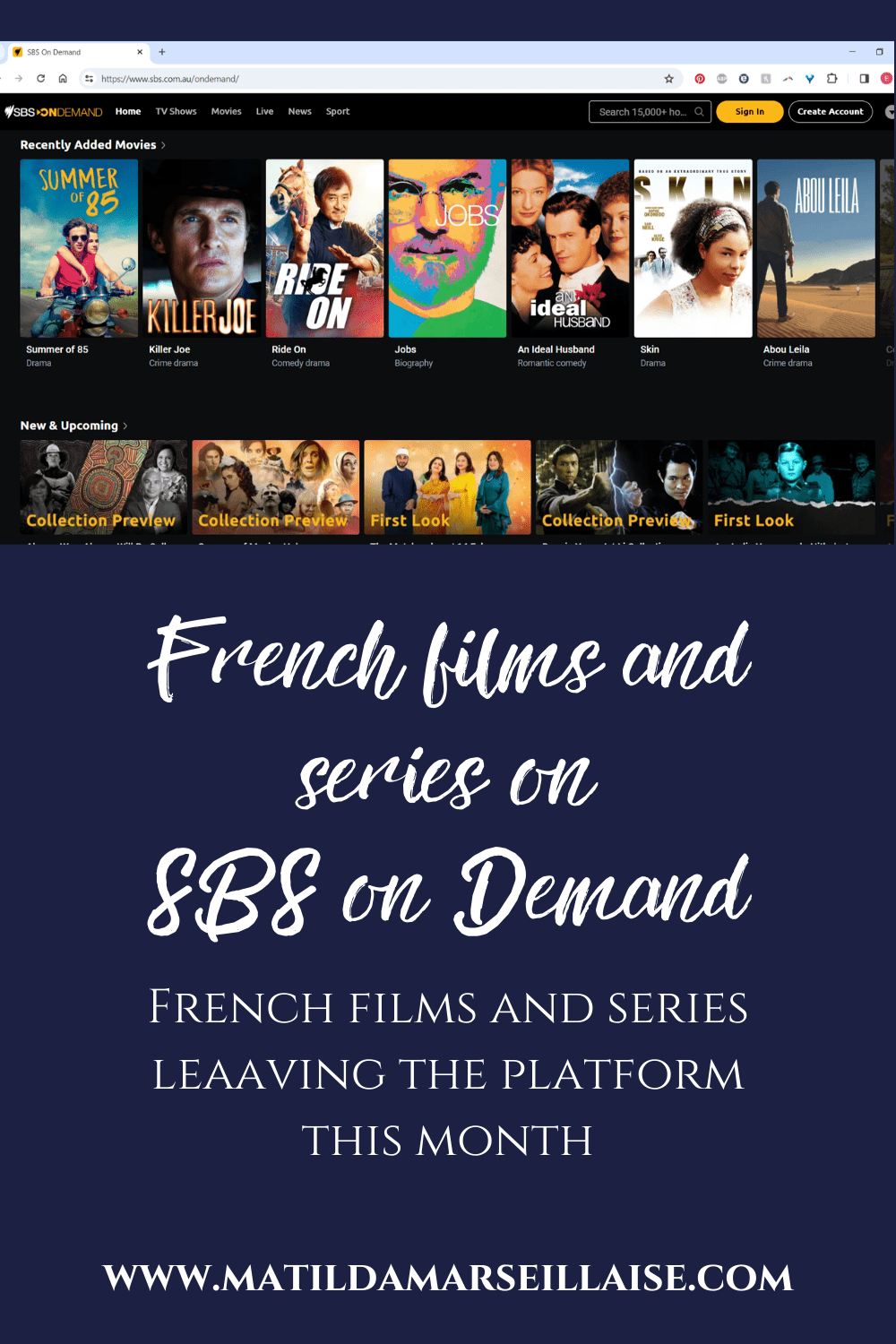Over the next two months, the Art Gallery of New South Wales will host free screenings of some of the most iconic Nouvelle Vague films every Wednesday and Sunday, including during the Gallery’s Art After Hours on Wednesday nights.

Emerging in late 1950s France, the French New Wave revolutionised cinema with its bold energy, radical techniques, and effortlessly cool style. A new generation of filmmakers tore up the rulebook—ditching studios for real locations, scripting for spontaneous dialogue, and polished narratives for fragmented, self-aware storytelling. Techniques like jump cuts and breaking the fourth wall became signatures of a movement that blurred the line between fiction and reality. The Nouvelle Vague remains one of cinema’s most influential and enduring revolutions.
🎬 François Truffaut
The 400 Blows (Les Quatre Cents Coups, 1959)
A poignant and semi-autobiographical coming-of-age story that helped launch the Nouvelle Vague, following a Parisian boy’s descent into truancy and rebellion.
Jules and Jim (Jules et Jim, 1962)
A lyrical and tragic love triangle spanning decades, blending freewheeling narrative style with emotional depth and visual innovation.
🎬 Jean-Luc Godard
Breathless (À bout de souffle, 1960)
A groundbreaking film that redefined cinema with its jump cuts, handheld camerawork, and cool disaffection, following a charming criminal on the run in Paris.
Alphaville (1965)
A dystopian sci-fi noir that critiques totalitarianism through a blend of futuristic narrative and Paris-as-backdrop minimalism.
Weekend (1967)
A savage, surreal satire of bourgeois society and consumerism, infamous for its chaotic narrative and extended tracking shots.
🎬 Alain Resnais
Hiroshima, My Love (Hiroshima mon amour, 1959)
A haunting meditation on memory, trauma, and forbidden love between a French actress and a Japanese architect in postwar Hiroshima.
Last Year at Marienbad (L’Année dernière à Marienbad, 1961)
An enigmatic and dreamlike film that blurs time and reality, exploring memory, desire, and ambiguity in a baroque setting.
🎬 Agnès Varda
Cléo from 5 to 7 (Cléo de 5 à 7, 1962)
A real-time portrait of a young singer wandering Paris while awaiting medical results, grappling with mortality and identity.
Happiness (Le Bonheur, 1965)
A visually bright yet unsettling critique of bourgeois domesticity and narcissistic male delusion, exploring the illusions of contentment.
🎬 Jean Rouch & Edgar Morin
Chronicle of a Summer (Chronique d’un été, 1961)
A pioneering cinéma vérité documentary that explores the lives and opinions of ordinary French people through candid interviews and self-reflection.
🎬 Jacques Panijel
October in Paris (Octobre à Paris, 1962)
A politically charged documentary about the brutal repression of Algerian protesters in Paris, censored for decades and emblematic of activist filmmaking.
🎬 Jacques Rozier
Adieu Philippine (1962)
A bittersweet portrait of youth, love, and looming war, following a young TV technician and a pair of friends in 1960s Paris before his conscription to Algeria.
🎬 Jacques Demy
The Umbrellas of Cherbourg (Les Parapluies de Cherbourg, 1964)
A visually dazzling and entirely sung romantic melodrama about love lost to time and circumstance, blending Hollywood style with Nouvelle Vague sentiment.
—
These screenings are a rare opportunity to see these iconic, ground-breaking Nouvelle Vague films.
KEY INFO FOR NOUVELLE VAGUE FILM SERIES
WHAT: Film Series: Nouvelle Vague – A short history of the French New wave
WHERE: Art Gallery of New South Wales, SYDNEY
WHEN:
- Les 400 Blows – Sunday 13 July
- Breathless – Wednesday 16, Sunday 20 July
- Hiroshima, my amour – Wednesday 23 July,
- Last year at Marienbad – Sunday 27 July
- Cléo from 5 to 7 – Wednesday 30 July, 3 August
- Chronicles of a Summer – Wednesday 6 August
- October in Paris – Sunday 10 August
- Jules and Jim – Wednesday 13 August
- Adieu Philippine – Sunday 17 August
- Alphaville – Wednesday 20 and Sunday 24 August
- The Umbrellas of Cherbourg – Wednesday 27 and Sunday 31 August
- Happiness – Wednesday 3 September
- Weekend – Sunday 7 September
See the website for times.
HOW: Tickets are only available for the current month. Tickets for August will be made available at the beginning of August. Buy yours via this link.
HOW MUCH: FREE!
—
For more events with links to France and the Francophonie, check out our What’s on in July
Don’t forget that the Children’s International Film Festival is also currently on. Discover the films from France and the Francophonie here





